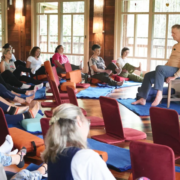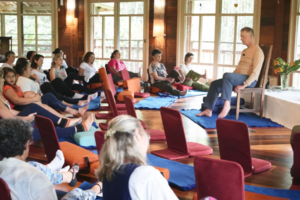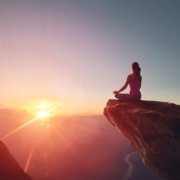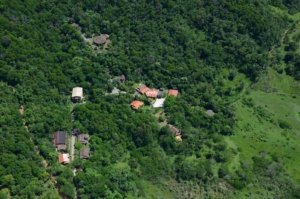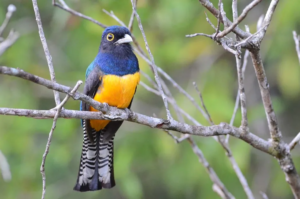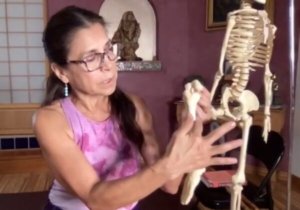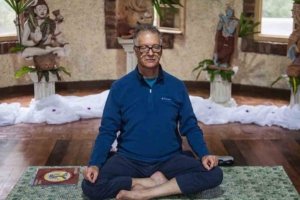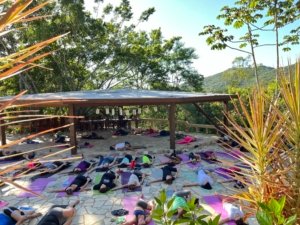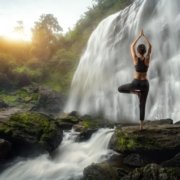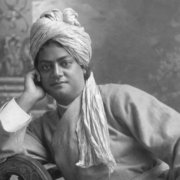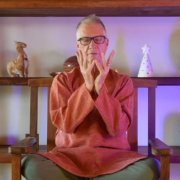Chronic stress can create problems for our circulatory system, in the form of hypertension; for our digestive system in the form of indigestion; and for the nervous system in the form of headaches and insomnia. Did you know that chronic stress is also a major source of discomfort and pain in our muscles and joints? This is because one of the effects of the stress response is to contract the main muscles groups of the body in preparation to fight or flee when we meet a threat or emergency.
When this muscular contraction occurs occasionally in time of need, it is healthy and sometimes absolutely necessary. An example of this is when you are crossing the street and have to jump out of the way of an out-of-control vehicle. But, when stress becomes chronic due to traffic and deadlines at the office, muscle soreness and pain related to the stresses of daily living can result.
Chronic stress creates a vicious cycle
Pain, soreness and inflammation can occur due to chronic stress because when muscles are contracted, blood supply and oxygen to those areas is increased initially, but if the muscles remain contracted chronically, waste products build up and these areas become depleted of oxygen and nutrients. Movement becomes limited in these areas and inflammation and pain occur, which further restricts movement and circulation leading to more pain.
This creates a vicious cycle in which inflammation causes pain which leads to loss of movement which leads to more injury, which feeds right back into inflammation and pain. So, it becomes a never-ending loop.
Stress and chronic contraction of the muscles can also result in postural problems which are exacerbated by inadequate posture in daily living such as a position with the head forward toward the computer and other office related tasks. This lack of posture awareness at work and at home which is exacerbated by stress also becomes a source of postural problems, so we develop work habits which are reinforced by stress which tend to become Musculo-skeletal problems overtime.
These postural problems can lead to other problems including difficulty in performing daily tasks and activities and can also increase the possibility of other injuries, including falls when the structure of the body is not optimally supported.
Chronic stress can also affect our posture because the stress emotions of fear, anger and sadness can make postural problems worse. A slumped posture related to sadness or depression, or a chronically defensive posture related to anger can evolve into postural problems which cause tension, inflammation and pain.
Stress affects every part of the body, but the spine is especially vulnerable. The spine functions on the basis of natural curves which work like shock absorbers to receive the stresses of daily living. Chronic muscular contraction and poor posture reduce the ability of this shock-absorption system to function optimally. The spine is cushioned by a series of discs which require nutrition, hydration and circulation which they receive, in part, through healthy movement. The chronic contraction associated with the stress response reduces range of motion, nutrition and circulation to the spinal discs.
Yoga uses a multifaced approach to optimize posture and simultaneously reduce stress.
Yoga Exercise to reduce stress response
Yoga uses a multifaced approach to optimize posture and simultaneously reduce stress.
- The warm-up movements release tension from every part of the body, facilitating healthy movement and increasing circulation and release of toxins from all the muscles.
- The Yoga poses train every area of the body in optimal posture and strengthen the muscles and joints that support that posture. This is especially important in maintaining balance as we age in order to prevent falls.
- The affirmations and gestures cultivate positive attitudes and qualities that serve as an antidote to stress.
- The breathing techniques enhance circulation and the removal of waste products from the entire body. Something as simple as abdominal breathing works as pump to enhance circulation and elimination.
- In deep relaxation, all the cells and tissues of the body are nourished and restored while inflammation is reduced.
- In meditation, we become calm and centered with the entire body supported optimally in its ideal posture. This creates a deep body memory to remain calm, centered and aligned, not only in meditation but in daily livin
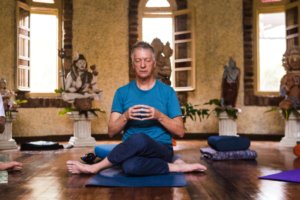 Joseph Le Page
Joseph Le Page
Joseph Le Page founded Integrative Yoga and Integrative Yoga Therapy in 1993, and is a pioneer in the field of Yoga therapy training programs. He began teaching yoga therapy in hospital settings in 1995 and continues up to the present as Director of The Healthy Heart Program, which conducts Yoga Therapy group programs in public health settings in Brazil.
Joseph has been a speaker at major conferences including Yoga Journal, the International Association of Yoga Therapists, the Kripalu Yoga Teacher’s Association, the International Association of Yoga and Ayurveda, and others. He is co-founder and director of the Enchanted Mountain Yoga Center in Garopaba, Brazil, one of the largest Yoga retreat centers in South America.
He is the co-author of the book Yoga Toolbox for Teacher and Students, one of the most widely used materials in teacher training programs in the US and in Brazil, published by Integrative Yoga. He is also co-author of the book Mudras for Healing and Transformation, also published by Integrative Yoga.
What are mudras? Watch the video with Joseph Le Page
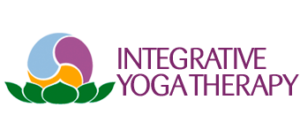



 Joseph Le Page
Joseph Le Page
